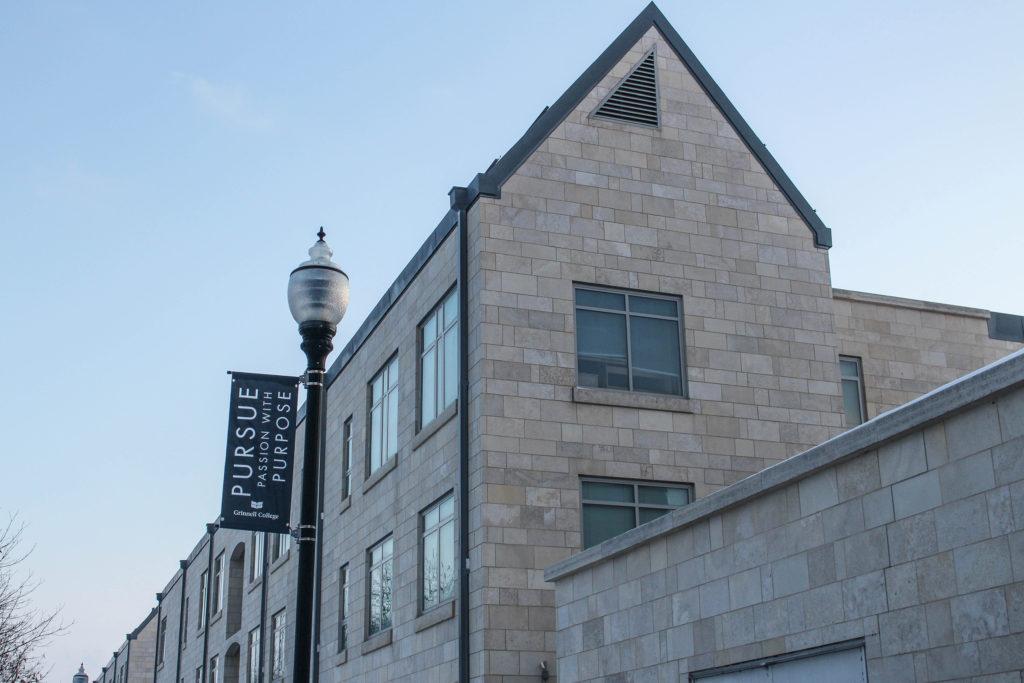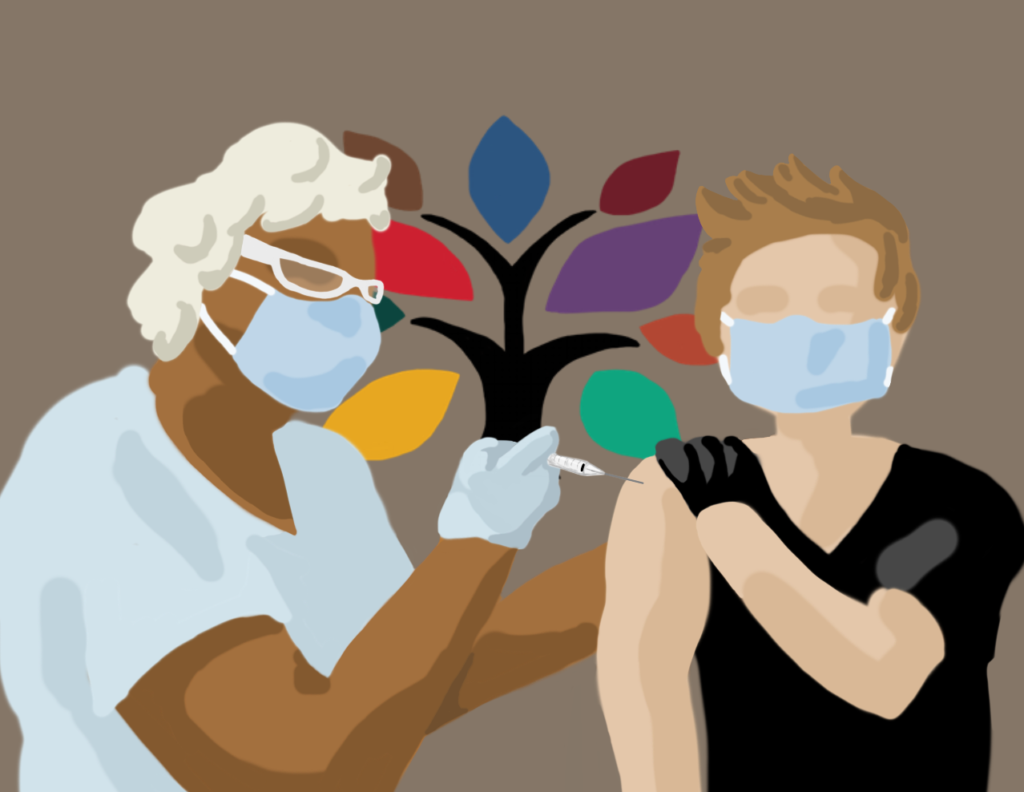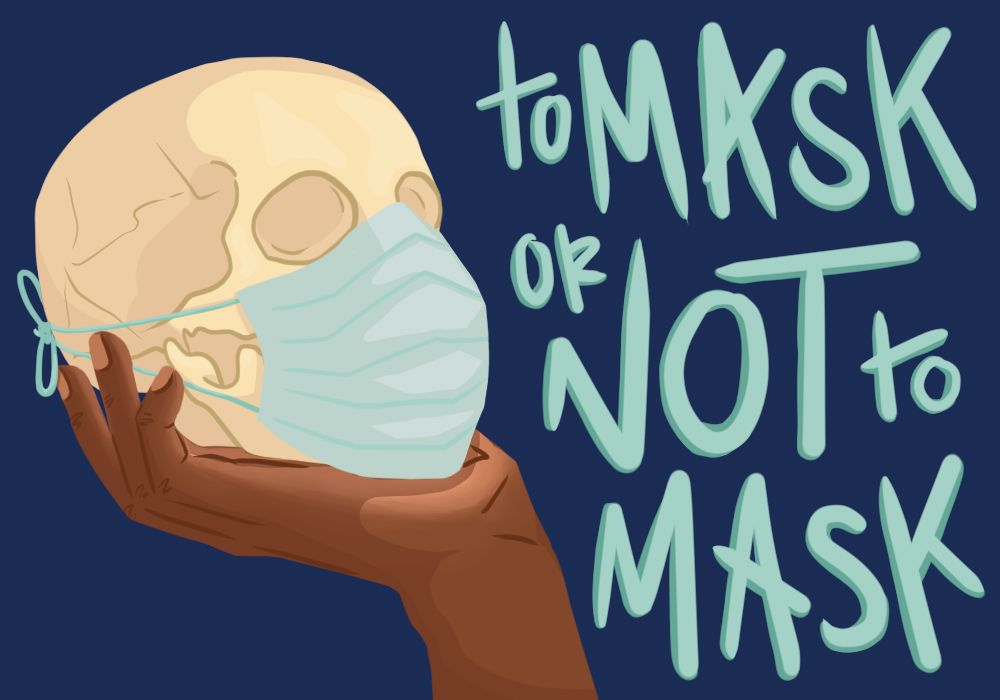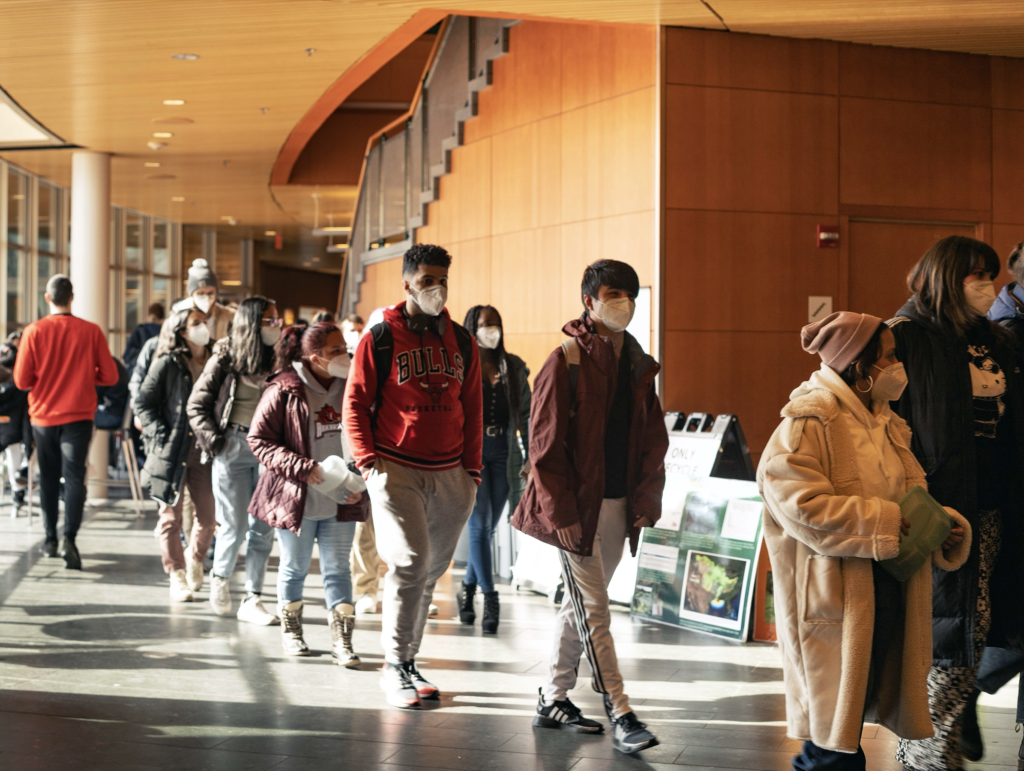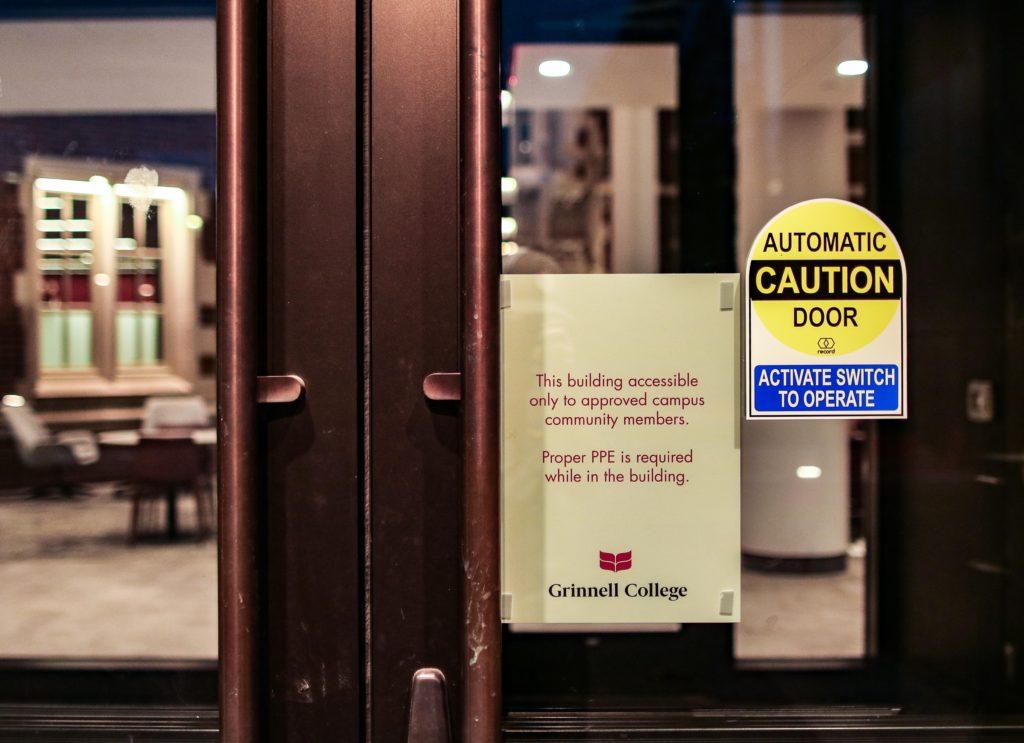Grinnell students placed in on-campus quarantine due to COVID-19 exposure are expressing concern over what they view as a disregard from the College for the negative mental health impacts of isolation.
“I can’t lie, I’ve thought about going home many times already. … I wanted to go home like a week after I got here,” said Oliver Schoenborn `24, who was placed into in-room isolation after he notified Student Health and Wellness (SHAW) of potential COVID-19 symptoms.
Schoenborn describes being ordered to quickly move from his dorm in Smith Hall to Rose Hall, the dorm for potential COVID cases, in the hours after he’d reported symptoms.
The Center for Disease Control (CDC) recommends that asymptomatic or mildly symptomatic adults should isolate for 10 days to prevent spreading the virus. Per these recommendations, Grinnell College requires students with COVID-19 to isolate for 10 days after the date of their first positive test, unless the student experiences severe symptoms or is immunocompromised, in which case they may be isolated for longer. Similarly, students who are placed into in-room quarantine due to exposure must receive two negative tests before they are released from room quarantine.
I’ve thought about going home many times already. … I wanted to go home like a week after I got here. – Oliver Schoenborn ’24
But Schoenborn said he would have liked some more support from the College when he went into isolation. “I didn’t receive any sort of help, like a cart or trolley to move my stuff – I hurt my hip during that – it wasn’t a pleasant experience,” he said.
Schoenborn also said that his general experience as a student in the isolation hall changed his view of Grinnell as an institution. “It’s not exactly an environment that is welcoming. … Grinnell also emphasizes the importance of having a community during the fight against COVID – personally, since I’ve arrived here, I’ve felt everything but a sense of community.”
Laura Kiely `24, on the same floor as Schoenborn, was placed into in-room quarantine as well, and she said that though she understands the challenges of quarantining students, she feels that the College as has acted with “very little compassion” for her mental health during the process. “There was very little done to help our mental health as well as our physical health,” she said. “We had daily symptom checks with the nurses through the SHAW portal, which was just, ‘What’re your symptoms and how is your temperature,’ but basically radio silence other than that.”
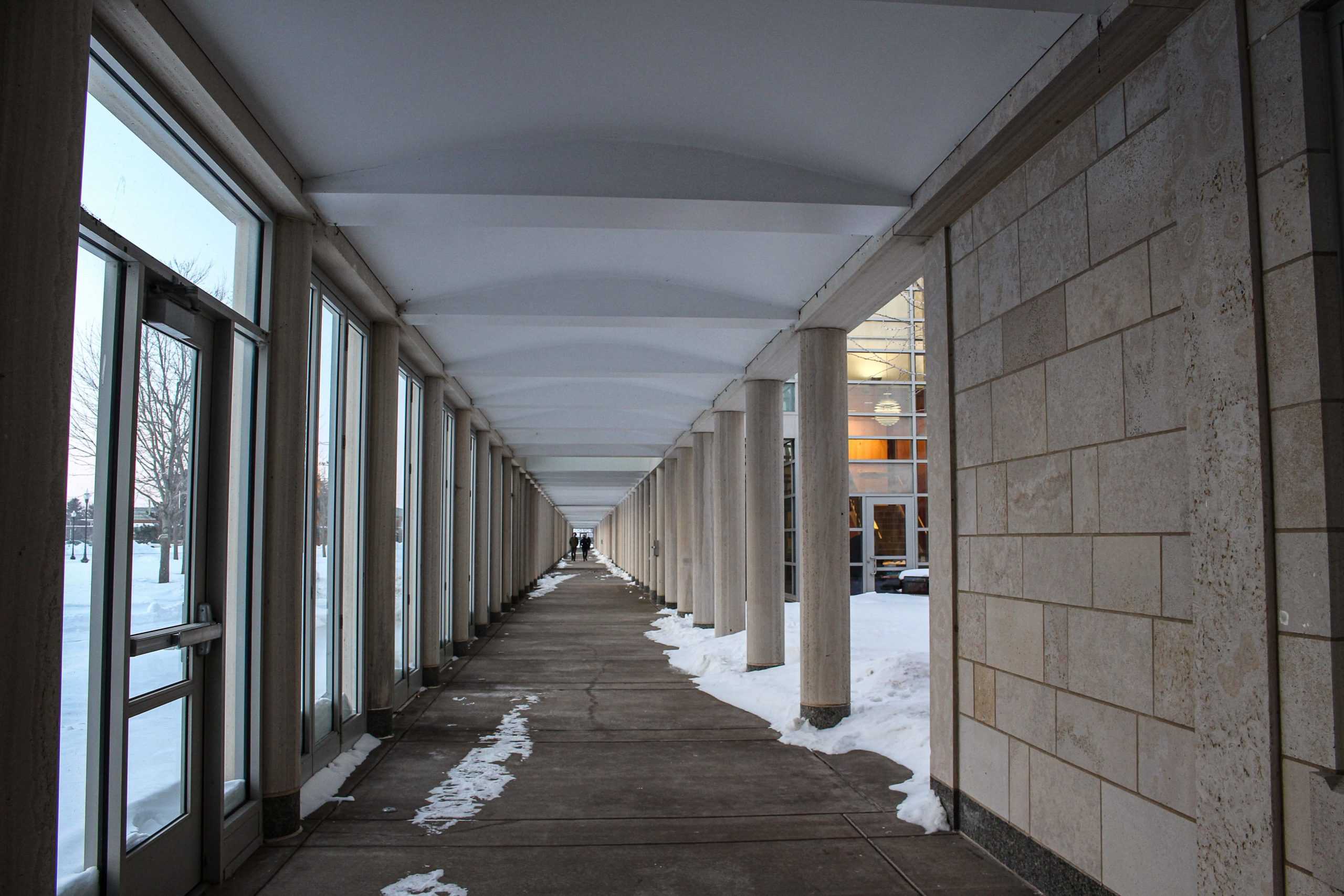
First-year students this year may find these isolation periods more challenging than third- or fourth-years due to the unfamiliarity of the Grinnell campus and the Grinnell administration. Additionally, the fact that Spring Term 1 may be their first extended period away from home may exacerbate the homesickness which can often arise during students’ first year at college, regardless of the pandemic.
Kiely said she would have wanted the counseling services within SHAW to contact her and other students in isolation to check up on their mental well-being, and described her 10-day isolation as causing her mental health to deteriorate. Schoenborn agreed with Kiely that his mental health took a hit while he was in isolation, and also characterized Grinnell’s treatment of isolated and quarantined students as “unprepared.”
We had daily symptom checks with the nurses through the SHAW portal, which was just, ‘What’re your symptoms and how is your temperature,’ but basically radio silence other than that. – Laura Kiely ’24
Schoenborn said that on the evening of Feb. 9 and the morning of Feb. 10, he did not receive his meals and had to call Dining Services to receive them. Despite his frustration, Schoenborn characterized the issue as ultimately minor. However, it wasn’t an isolated error – Kiely also said that on her first day in isolation, her name was not included on the list of isolated students, and so she had to call Dining Services as well.
She said she was thankful that, on Feb. 5, students in isolation were granted the permission to take short walks for the remainder of their isolation. However, Kiely added, she was frustrated at how long it took the Grinnell administration to allow that option.
The option of outside exercise is not available for students who do end up testing positive for COVID-19, since the risk of additional exposure to other students is higher.
Ben Rieber `24, who tested positive for COVID-19 on Jan. 29, characterized his time in quarantine as being fully secluded. “I was trapped in a small room, and I was not allowed to communicate with other people [in-person],” said Rieber. Within the half-hour that Rieber had tested positive for COVID-19, SHAW told him to quickly pack up and move out of Dibble Hall, and to provide the names of everyone he had been in contact with over the past several days. Within the next few hours, Rieber was quarantined in Rose Hall, and would be in quarantine for the next 10 days.
“It was quite a rush,” Rieber said.

















































